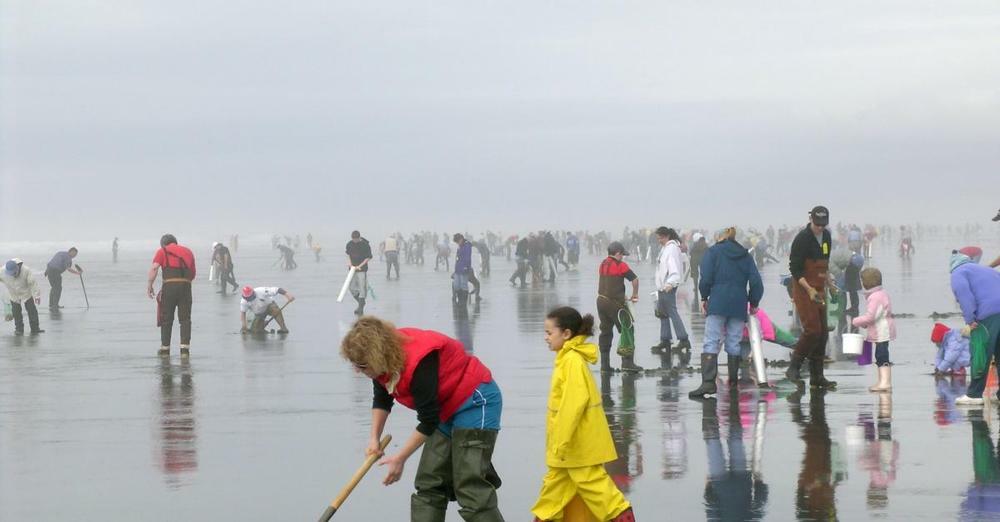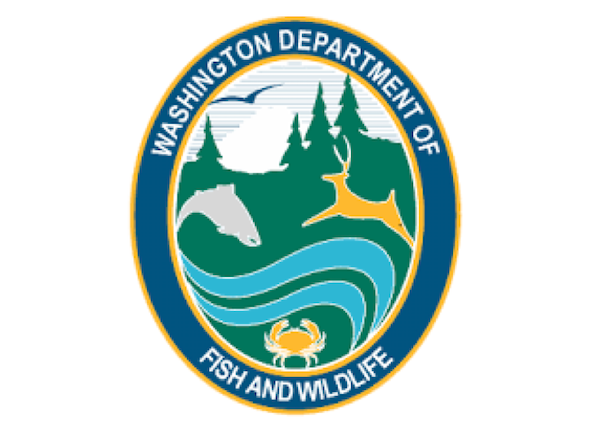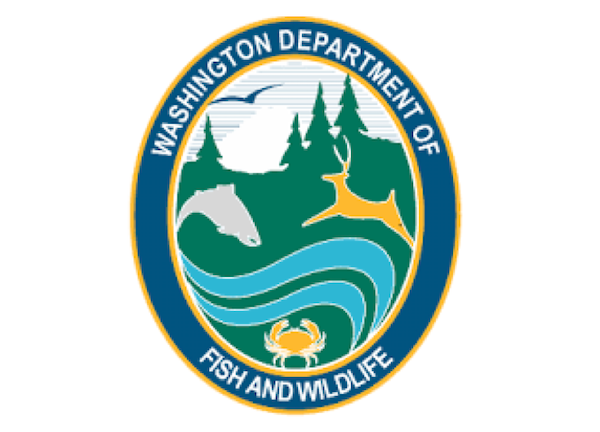Fish Report for 11-24-2021
December’s first razor clam digs moving ahead on Washington coast

by WA Department of Fish & Wildlife Staff
11-24-2021
Website
OLYMPIA – Razor clam digging continues in December, as shellfish managers with the Washington Department of Fish and Wildlife (WDFW) have approved the next round of digs for Washington’s coastal beaches.
The latest tests for marine toxins came back all clear from the Washington Department of Health, which means the first round of December digs can proceed as planned.
“The weather hasn’t always been cooperative the last couple of weeks, but there’s still plenty of opportunities to hit the beach and dig for some razor clams,” said Dan Ayres, coastal shellfish manager with WDFW. “Hopefully December will bring some clearer winter days for people to get out and enjoy this amazing resource.”
Ayres recently shared some tips for cleaning and cooking razor clams in a video, which can be viewed at https://www.youtube.com/watch?v=sTaRaHkFFEw. For some basics on how to dig razor clams, see https://wdfw.wa.gov/fishing/basics/digging-razor-clams.
The following digs were approved, along with the low tides and beaches:
- Dec. 1, Wednesday, 4:09 P.M.; +0.1 feet; Long Beach, Twin Harbors, Copalis
- Dec. 2, Thursday, 4:58 P.M.; -0.8 feet; Long Beach, Twin Harbors, Mocrocks
- Dec. 3, Friday, 5:45 P.M.; -1.5 feet; Long Beach, Twin Harbors, Copalis
- Dec. 4, Saturday, 6:32 P.M.; -1.9 feet; Long Beach, Twin Harbors, Mocrocks
- Dec. 5, Sunday, 7:20 P.M.; -2.0 feet; Long Beach, Twin Harbors, Copalis
- Dec. 6, Monday, 8:09 P.M.; -1.7 feet; Long Beach, Twin Harbors, Mocrocks
- Dec. 7, Tuesday, 8:59 P.M.; -1.2 feet; Long Beach, Twin Harbors, Copalis
- Dec. 8, Wednesday, 9:51 P.M.; -0.6 feet; Long Beach, Twin Harbors, Mocrocks
- Dec. 9, Thursday, 10:45 P.M.; +0.1 feet; Long Beach, Twin Harbors, Copalis
All open beaches (Long Beach, Twin Harbors, Mocrocks, and Copalis) have increased limits through the end of 2021, with diggers allowed to keep 20 clams instead of the usual 15. Each digger’s clams must be kept in a separate container, and all diggers must keep the first 20 clams they dig, regardless of size or condition.
Not all beaches are open for every dig, so diggers are encouraged to make sure their intended destination is open before heading out. Diggers should also continue to respect coastal communities and residents by following local and state health guidelines.
The following digs were approved, along with the low tides and beaches:
Most successful digging occurs between one and two hours before the listed time of low tide. No digging is allowed before noon during digs when low tide occurs in the afternoon or evening.
WDFW has tentatively scheduled additional digging dates later in 2021 – details can be found at wdfw.wa.gov/fishing/shellfishing-regulations/razor-clams. All tentative dates are dependent on final marine toxin testing, which usually occurs about a week or less prior to each set of openings. WDFW will announce additional dates in 2022 in mid-December after reviewing harvest levels and projections.
All diggers age 15 or older must have an applicable fishing license to harvest razor clams on any beach.
Licenses, ranging from a three-day razor clam license to an annual combination fishing license or a Fish Washington license, are available from WDFW’s licensing website at fishhunt.dfw.wa.gov/login, and from hundreds of license vendors around the state. WDFW recommends buying your license before visiting coastal beach communities for this razor clam season.
To learn more about razor clam abundance, population densities at various beaches, and how seasons are set, visit wdfw.wa.gov/fishing/shellfishing-regulations/razor-clams#management.
The Washington Department of Fish and Wildlife works to preserve, protect, and perpetuate fish, wildlife and ecosystems while providing sustainable fish, wildlife, and recreational and commercial opportunities.
More Reports
WA Department of Fish & Wildlife Reports
for Monday, November 22nd, 2021
Fourth Of July Lake: North end Fourth of July is starting to ice up
: Commission made a decision on 2022 spring black bear special permits; heard briefing on coastal steelhead
Washington residents who hunt in Idaho or Manitoba asked not to import deer, elk, and moose due to detections of Chronic Wasting Disease

11-20-2021
SPOKANE – Cases of chronic wasting disease (CWD) confirmed in Idaho and Manitoba have wildlife managers at the Washington Department...... Read More

Website Hosting and Design provided by TECK.net